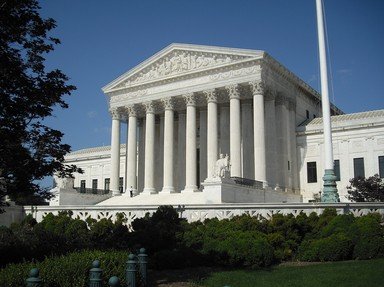Quiz Answer Key and Fun Facts
1. A Muslim inmate in an Arkansas prison claimed he had a right to grow a beard based on religious reasons. Did the Supreme Court agree?
2. In the case of Williams-Yulee v. Florida Bar, the court ruled that a Florida law regarding the election of judges was constitutional. What are judicial candidates prohibited from doing under this law?
3. The case of Walker v. Texas Division, Sons of Confederate Veterans, dealt with the issue of whether the state of Texas could deny drivers the right to have specialty license plates bearing the Confederate battle flag. The four liberals voted for the state of Texas, but the fifth vote was surprisingly provided by which justice, known as the court's most conservative member?
4. In Elonis v. United States, the defendant received a 44-month prison sentence for posting threatening rap lyrics directed at his wife. Which social media site did Elonis use for his "artistic" endeavor?
5. In Zivotofsky v. Kerry, the court was asked to determine whether Congress could mandate that American children born in a particular city be designated in a certain way on their passports. Which city was at issue in this case?
6. The case of Equal Opportunity Employment Commission v. Abercrombie & Fitch involved a job applicant allegedly rejected because of a particular religious practice. What was that religious practice?
7. The case of Arizona State Legislature v. Arizona Independent Redistricting Commission, dealing with the issue of whether it was proper for an independent commission to supplant the legislature in redistricting matters, turned on the interpretation of a single word in the Constitution. Which word was that?
8. In the case of Glossip v. Gross, the court considered the issue of whether a certain combination of drugs used by Oklahoma in its executions violated the Eighth Amendment prohibition against cruel and unusual punishment. Which justice wrote a powerful dissent, arguing that the court should consider whether the death penalty itself was constitutional?
9. The Affordable Care Act, colloquially known as Obamacare, was again before the court in 2015 in the case of King v. Burwell. Did the ACA survive this latest challenge?
10. The long-awaited same-sex marriage decision was handed down at the end of this term. Who was the justice who joined the four liberals in holding that the Constitution guaranteed a right to same-sex marriage?
Source: Author
chessart
This quiz was reviewed by FunTrivia editor
stedman before going online.
Any errors found in FunTrivia content are routinely corrected through our feedback system.
